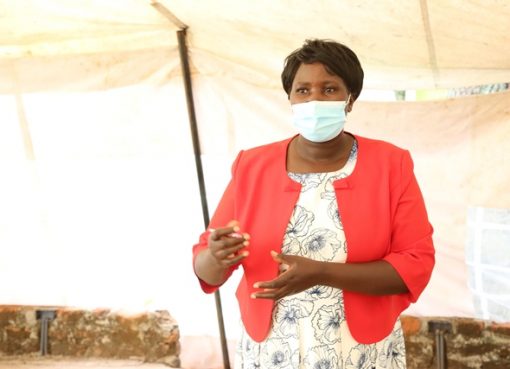The National Counter Terrorism Centre (NCTC) is seeking to adopt a community approach in deterring Violent Extremism and radicalization in the country under a new strategy aimed at combating terrorism and related terror activities.
NCTC Director Dr. Rosalind Nyawira while closing a two-day workshop on the review of the National Strategy to Counter Violent Extremism at a Nanyuki hotel, said that the review was informed by the ineffectiveness of the previous strategy adopted in the year 2016, but the changing dynamics of terror activities has necessitated the adoption of new tactics and approaches.
“There’s a need to refresh the strategies developed in 2016, eight years is a long time and due to the changing and dynamic nature of Violent Extremism we must come up with new ideas if we are to stay ahead of terrorists,” Dr. Nyawira noted.
She further noted that the conflict between Israel and Palestine posed increased terror threats to Kenya therefore the need for heightened vigilance by security apparatus.
“Violent Extremism globally has gone virtual whereby you find radicalization, recruitment and training is often done online, therefore there is also a need as a country to regulate technology use to tame the same,” the NCTC Director observed.
She noted that under the new strategy being formulated, there would be a shift from pillar-oriented approaches to working groups in the County Engagement Forums (CEFs) that would become the primary organs for implementation in the fight against terrorism.
The strategy aims at empowering counties to tackle their own unique challenges that can be exploited by violent extremists.
The workshop that drew participants from the seven counties of Embu, Kirinyaga, Nyeri, Laikipia, Meru, Isiolo and Marsabit heard that the new strategy seeks to have male mentors to guide the youth as well as creation of women networks to act as early warning systems since mothers are better placed to detect changes in children behavior.

“There is also a need to create resilience to children from broken families by religious leaders since the disturbed young ones are more prone to radicalization,” Dr. Nyawira said.
Laikipia County Commissioner Onesmas Kyatha observed that there was need to look at gaps at local levels that are being exploited by violent extremists. “These terrorists don’t sleep, they plan all the time until they hit their target,” he said.
The CC further observed that there was a need to address issues of marginalization among some communities that the terrorists exploit to recruit members.
Director Dr. Micahel Mugo Foundation for Dialogue, a lead agency in the implementation of the strategies to fight violent extremism, noted that the community approach proposed in the new strategy would go a long way in taming terrorism.
“We are seeking to change the terrorists’ narrative by engaging the community from the lowest levels in society so that information on suspicious happenings can be shared promptly with relevant authorities,” Dr. Mugo said.
Dr. Mugo further said that the new strategy sought to enhance economic opportunities for youth at risk of recruitment by terrorists.
“An educated and idle youth can easily be motivated to do anything, therefore the need to engage them in meaningful economic activities to deter them from recruitment to Violent Extremism,” he added.
The updated strategy aims to increase the involvement of women, youth, and male mentors as front liners in preventing and countering violent extremism (PCVE) in communities.
Input will also be sought from civil society organizations and academia to ensure a comprehensive approach to the strategy.
By Martin Munyi




